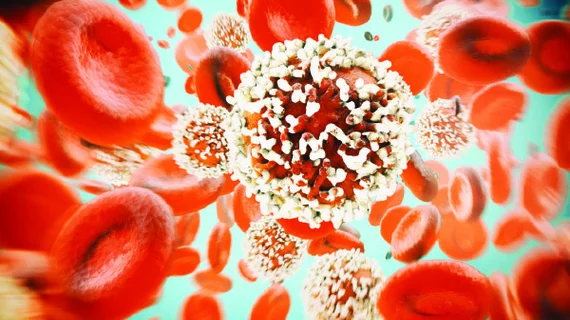Immuno-PET may enhance cancer treatment decisions, predict response to therapy
Positron emission tomography scanning can earlier depict a tumor’s response to therapy and help physicians pick the most effective treatment for patients with cancer, according to a recently published study.
A group of Memorial Sloan Kettering Cancer Center-led researchers specifically utilized immuno-PET imaging for their findings, published in the March issue of the Journal of Nuclear Medicine. The method uses a radiotracer to follow antibody drugs directed toward a tumor.
The team, which also included National Institutes of Health scientists, showed that immune-PET scans accurately visualized changes in cancer receptors known as tyrosine kinases (RTKs) during therapy. It should give physicians a significant time advantage in the battle against cancer.
“When healthy cells turn into cancer cells, there is a disruption in the RTK signaling. This makes RTKs a valuable therapeutic and imaging target,” Patricia Pereira, PhD, a research associate at Memorial Sloan Kettering in New York, said in a statement. “Techniques that allow for real-time monitoring of RTK dynamics, such as immuno-PET, could be very beneficial in informing treatment choice and predicting response.”
For their current study, Pereira et al. used immune-PET and three distinct antibodies to examine another three RTKs within a kidney tumor.
The researchers confirmed that PET depicts these specific receptors in ways that determine the level of protein within a tumor. And immediately after treatment, immune-PET can spot RTK level changes and tell clinicians whether a cancerous tumor is responding.
“Precision medicine involves the identification of certain gene mutations and expressions, as well as other features, that contribute individual tumor signatures,” Pereira added. “Our study shows that immuno-PET is a powerful technique to document RTK changes and predict tumors' response to targeted therapies.”
Read more about the authors’ findings here.

